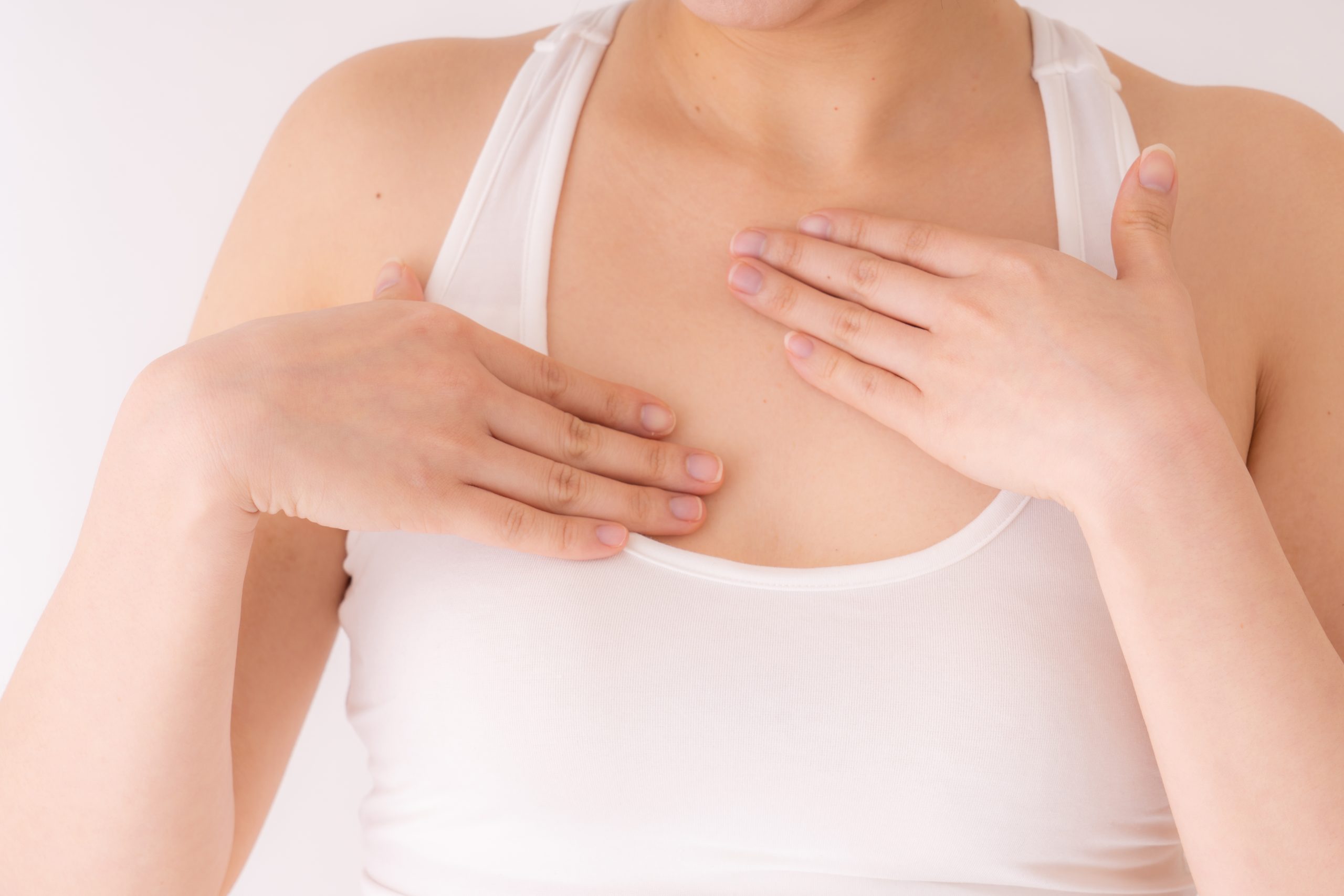From deodorant to cell phones to bras, there’s a lot of misinformation about the causes of breast cancer swirling around the internet. However, clinical research shows no definitive links between these environmental and lifestyle factors and the development of breast cancer. Researchers continue to evaluate whether other factors, such as smoking and certain chemicals in food, are linked to the disease. The good news is that studies have also revealed things you can do to help reduce your risk of breast cancer, such as exercising regularly and eating a healthy diet.
We have compiled a list of the most common breast cancer myths and facts to help you sort through the conflicting information you see online.

Myth: Keeping Your Phone in Your Bra Can Cause Breast Cancer
Some reports suggest radiofrequency waves given off by cell phones might cause tumors, putting women who carry their cell phones in their bras at a higher risk of developing breast cancer. However, there is no available clinical evidence to support these claims.
“There is no data to support carrying your cell phone in your bra results in breast cancer,” says Amy Chudgar, MD, mammography radiologist at Charlotte Radiology. “Organizations such as the Food and Drug Administration, the Centers for Disease Control and Prevention (CDC), Federal Communications Commission, and others have not found any direct evidence linking cell phones and cancer development.”
Dr. Chudgar recommends making small adjustments to ease any lingering doubts. “If you are concerned about exposure to radiofrequency waves from cell phones, you can carry your phone further away from your body and use hands-free headsets or a speaker phone.”
Myth: Chemicals in Deodorant Cause Breast Cancer
Rumors have circulated that deodorant and antiperspirant can be risk factors, particularly because breast cancers often occur in the upper, outer quadrant of the breast closest to the underarm. These claims falsely state that the chemicals in antiperspirants – like parabens and aluminum — are absorbed into the skin, blocking lymph circulation and leading to toxin buildup in the breast. But according to the American Cancer Society and the National Cancer Institute, clinical studies reveal no clear link between breast cancer risk and deodorants or antiperspirants. Women who remain concerned about potential cause-and-effect connections can choose from a number of deodorant/antiperspirant options with more natural, non-chemical ingredients.
Read More: Put Your Breast Health Knowledge to the Test
Myth: Breast Implants Can Lead to Breast Cancer
Getting breast implants has not been linked to an increased risk of developing breast cancer. However, in rare cases, certain types of implants can cause a different type of cancer called anaplastic large cell lymphoma (ALCL), which is a cancer of the cells of the immune system. When women with breast implants develop this disease, it is called breast implant-associated ALCL (BIA-ALCL).
The risk for BIA-ALCL is higher in women with textured implants rather than smooth implants. However, the condition is very rare, and usually curable when detected early enough. Women age 40+ including those with breast implants should continue to get annual screening mammograms. Patients with implants should notify the mammography technologist before the exam to make appropriate adjustments for imaging each breast.
Myth: Bras Cause Breast Cancer
Online rumors suggest that wearing bras can raise a woman’s risk of developing breast cancer because the wire obstructs lymph flow in the breast. However, the American Cancer Society says no scientific evidence supports this claim, and a 2014 study of more than 1,500 women confirmed this rumor is false.
Myth: People with No Family History of Breast Cancer Are Immune
Many people mistakenly believe if they have no family history of breast cancer, they are in the clear. However, this is a misconception. Only 5% to 10% of breast cancer cases are genetic, according to the American Cancer Society. In fact, a study in the American Journal of Public Health estimates that 80%–85% of breast cancers are diagnosed in women with no family history. The two biggest risk factors for developing breast cancer are being a woman and aging which is why breast health experts recommend annual screening mammograms for women 40 and older.
Myth: Men Cannot Develop Breast Cancer
Although it is much rarer, men can get breast cancer. The CDC reports that 1 in 100 diagnosed breast cancers is in a man. Breast cancer originates in breast tissue, so it’s still possible for men to develop it. Due to the low incidence rate of men developing breast cancer, research is limited, and treatments are often based on what we know about breast cancer in women.
Myth: Mammograms Can Cause Cancer to Form or Spread
Also circulating online are certain misconceptions that mammogram compression can cause existing cancer to spread or that mammograms themselves can cause breast cancer. Neither is true. While mammograms do emit a very small dose of radiation, the associated risk is extremely low, according to the National Cancer Institute. The proven outcomes of annual screening and early detection far outweigh any concern about such minimal exposure.
“Breast health experts recommend women have a screening mammogram every 12 months starting at age 40,” Dr. Chudgar says. “Even if your annual results are always normal, small changes in the breast tissue can be detected on a mammogram up to two to three years before they become large enough to be felt by you or a physician.
Detecting breast cancers at earlier stages requires less extensive treatment and confers better prognoses for patients. If you have known risk factors, experts recommend a baseline screening at 35 years old.”
Myth: Only People 40 and Older Can Develop Breast Cancer
While breast cancer is more common in people over 40, those under 40 are still at risk. Studies show breast cancer risk increases significantly after age 40. However, the CDC estimates nearly 10% of breast cancers are diagnosed in women younger than 45. Women under 40 should speak with their primary care doctor about their risk factors for breast cancer or whether to consider a baseline mammogram before 40 to test for breast density.



